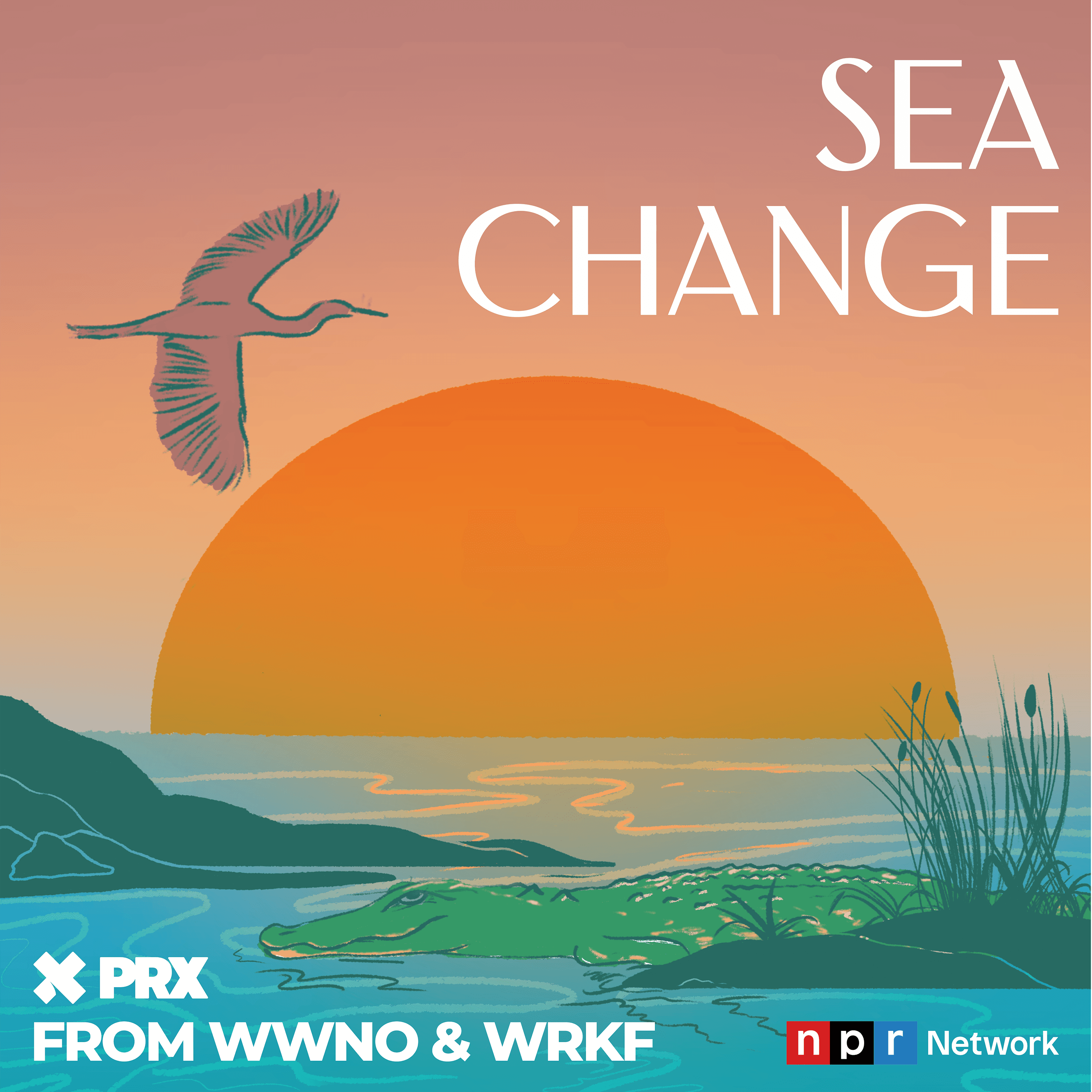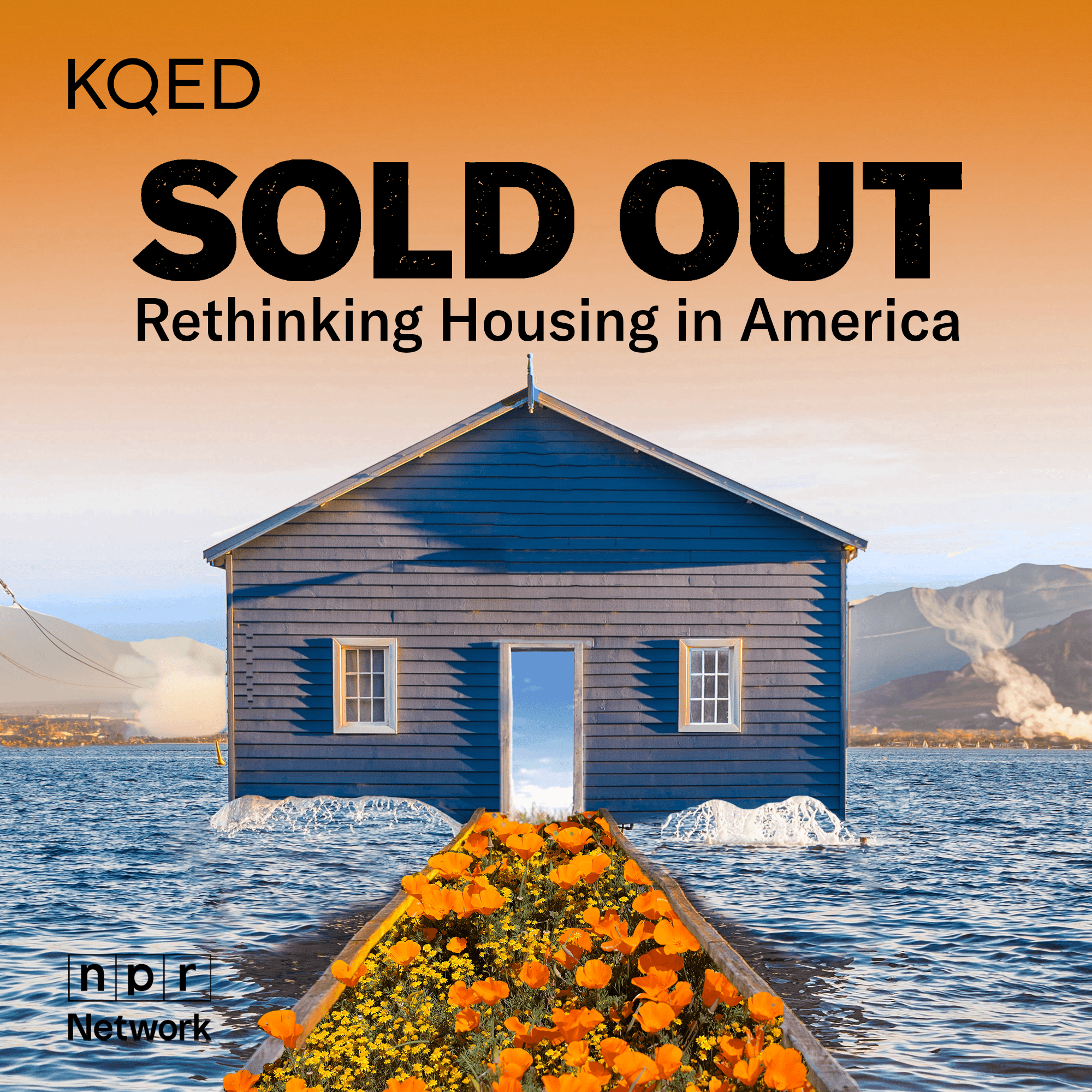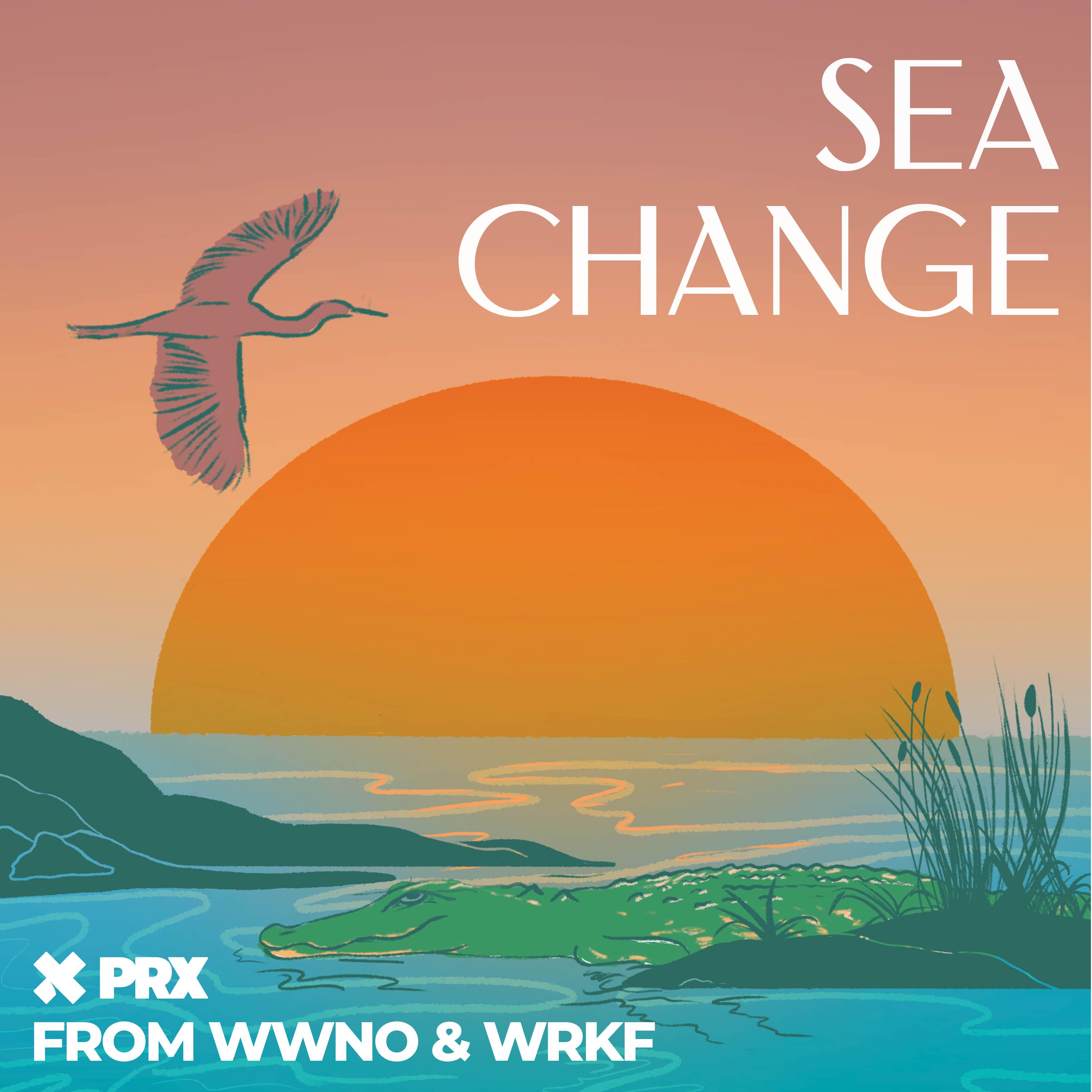
Sea Change
WWNO & WRKFLiving on the coast means living on the front lines of a rapidly changing planet. And as climate change transforms our coasts, that will transform our world.
Every two weeks, we bring you stories that illuminate, inspire, and sometimes enrage, as we dive deep into the environmental issues facing coastal communities on the Gulf Coast and beyond. We have a lot to save, and we have a lot of solutions. Join us as we investigate and celebrate life on a changing coast. It’s time to talk about a Sea Change.
Based in New Orleans, Sea Change is a production of WWNO New Orleans Public Radio and WRKF Baton Rouge Public Radio. Sea Change is a part of the NPR Podcast Network and is distributed by PRX. Hosted by Carlyle Calhoun. Our theme song is by Jon Batiste.
Sea Change is made possible with major support provided by The Gulf Research Program of the National Academies of Sciences, Engineering, and Medicine and The Water Collaborative. The Coastal Desk is supported by the Walton Family Foundation, the Greater New Orleans Foundation, and the Meraux Foundation.
Living on the coast means living on the front lines of a rapidly changing planet. And as climate change transforms our coasts, that will transform our world.
Every two weeks, we bring you stories that illuminate, inspire, and sometimes enrage, as we dive deep into the environmental issues facing coastal communities on the Gulf Coast and beyond. We have a lot to save, and we have a lot of solutions. Join us as we investigate and celebrate life on a changing coast. It’s time to talk about a Sea Change.
Based in New Orleans, Sea Change is a production of WWNO New Orleans Public Radio and WRKF Baton Rouge Public Radio. Sea Change is a part of the NPR Podcast Network and is distributed by PRX. Hosted by Carlyle Calhoun. Our theme song is by Jon Batiste.
Sea Change is made possible with major support provided by The Gulf Research Program of the National Academies of Sciences, Engineering, and Medicine and The Water Collaborative. The Coastal Desk is supported by the Walton Family Foundation, the Greater New Orleans Foundation, and the Meraux Foundation.






























































Fueling Knowledge: Part One

Universities have grown increasingly close with the fossil fuel industry. Oil and gas money is flowing into universities around the world, shaping everything from students’ careers to climate research that can influence global energy policy.
Some professors and students are sounding the alarm. They worry this influx of fossil fuel money could compromise the credibility of research institutions, tainting the information produced. That they are even being used as pawns in a fossil fuel propaganda campaign.
These ties go way back. To understand this relationship, and what's at stake, we zoom in on the oil-and-gas-branded campus of Louisiana’s flagship university–LSU. Where, after digging through hundreds of archival documents, we learn this relationship dates back nearly a century, evolving into the deep ties we see today. In the first episode of our two-part series, Fueling Knowledge, we investigate how this bond between fossil fuels and one university began.
This series was reported in partnership with the Louisiana Illuminator and Floodlight News.
To read more about the evolution of this relationship, check out this article.
This episode is the first in our two-part series: Fueling Knowledge. This episode is hosted by the Louisiana Illuminator’s Piper Hutchinson and Halle Parker. This episode was reported by Piper Hutchinson, Halle Parker, and Pam Radtke of Floodlight News. It was edited by Johanna Zorn and Carlyle Calhoun, with additional help from Ryan Vasquez, Rosemary Westwood, Greg Larose and Dee Hall. The episode was fact-checked by Garrett Hazelwood. Our theme music is by Jon Batiste and our sound designer is Emily Jankowski. Carlyle Calhoun is our managing producer.
Sea Change is a WWNO and WRKF production. We are part of the NPR Podcast Network and distributed by PRX. WWNO’s Coastal Desk is supported by the Walton Family Foundation, the Meraux Foundation, and the Greater New Orleans Foundation.